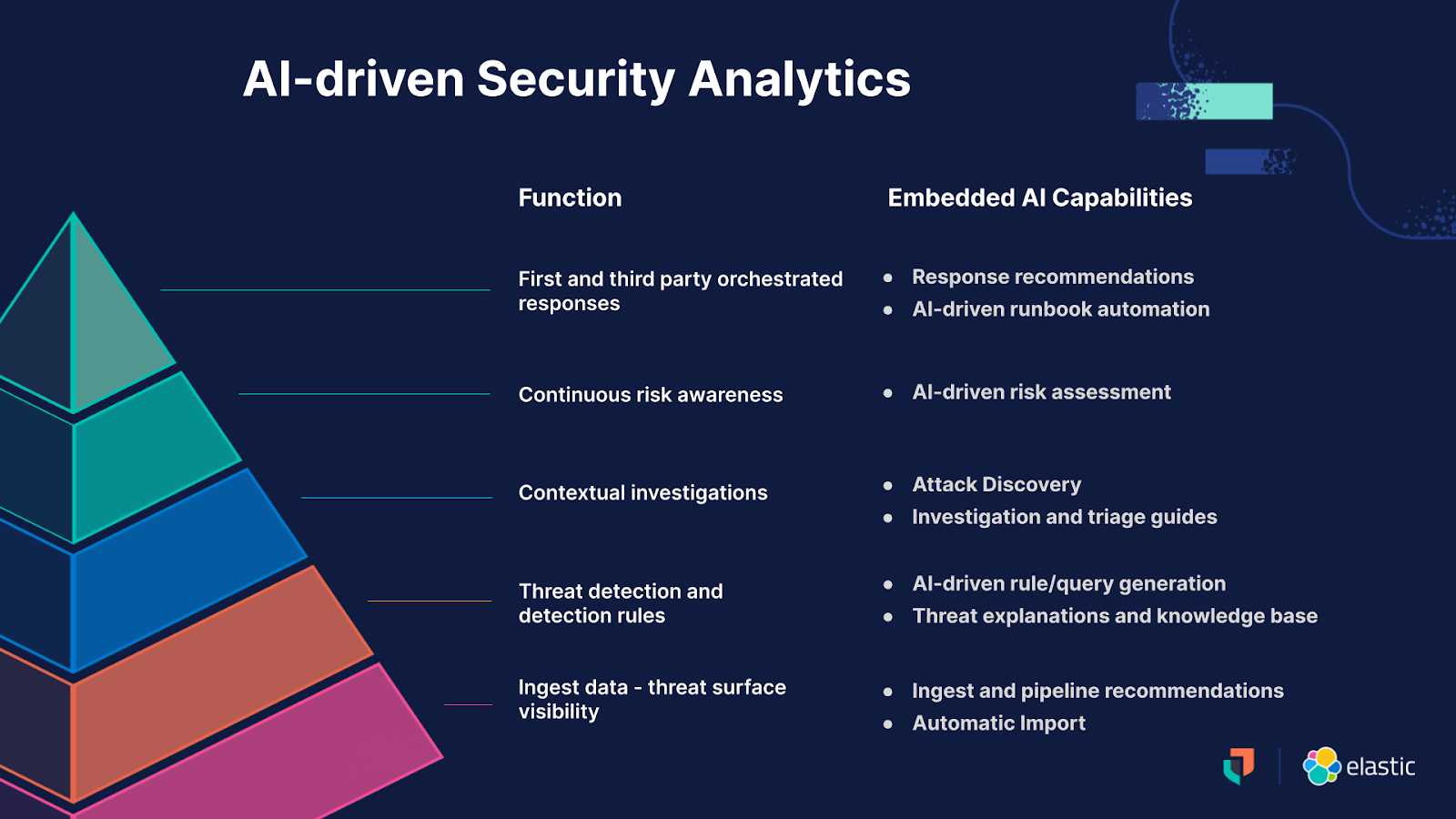Elastic launches Express Migration program for Splunk customers
Level up to Elastic’s AI-driven security analytics, now with incentives to ease and accelerate your SIEM migration

The SIEM is evolving again. Traditional SIEM solutions will be displaced in modern security operations centers (SOCs) by AI-driven security analytics, which uses the power of Search AI to replace largely manual SOC processes with automation. Powered by Elastic's Search AI Platform, Elastic Security is delivering on this evolution today by uniquely combining the power of search across an organization’s entire attack surface with retrieval augmented generation (RAG) to provide hyper-relevant results for all key SOC workflows.
Yesterday’s SIEM vendors like Splunk simply haven’t kept up. However, existing contracts and migration inertia often combine to delay an organization’s participation in this evolution and realization of its benefits. To mitigate these challenges, we are complementing our AI-based product capabilities, such as the recently launched Automatic Import for data onboarding, with Elastic Express Migration, an incentive program focused on providing an accelerated adoption path to customers.
“Migrating a SIEM or log analytics solution has typically been very painful and often the reason why most organizations stay on outdated technology,” said Santosh Krishnan, general manager of Security at Elastic. “Today, we’re easing migration for Splunk users with Elastic Automatic Import and the Elastic Express Migration program.”
Elastic Express Migration provides two key incentives for current customers of Splunk. Building on Elastic’s simple consumption-based pricing model, the program provides customers with migration credits to mitigate dual-vendor costs during their transition. Secondly, the program provides service credits that may be applied toward Elastic’s migration professional services.*
Splunk was taking more time than we wanted to spend — time that the analysts could be analyzing data instead of waiting to collect it
Larry Nichols, Cybersecurity Engineer & SIEM Admin at ORNL
Why AI-driven security analytics? And why now?
Since its launch in 2019, Elastic Security has been one of the fastest growing SIEM solutions in the market. In addition to a continuous stream of innovations since that launch, our customers have benefited from the unique differentiators of the Search AI Platform, namely:
The ability to manage data at scale — through a combination of high-scale ingest, efficient tiered storage that removes the need for rehydration from external archival systems, and a distributed architecture
Speed and performance — leveraging the way we index data
Hyper-relevance to provide automation and results that matter — through the application of search-powered retrieval augmented generation
Rooted in the above foundation, Elastic Security is on a path to integrating AI-driven guidance and automation into all the key workflows of the SOC — beyond assistants and co-pilots — with capabilities such as Attack Discovery for investigation and Automatic Import for ingest. On the heels of such innovations, the SIEM is changing fundamentally — and this change is happening today.

Migrating your SIEM to Elastic
Migrating a traditional SIEM to a modern solution has historically been a laborious task dominated by onboarding all the organization’s data sources and transferring detection rules from the old SIEM. Coupled with the burden of existing multi-year contracts, this imposes significant friction and unnecessary delays in adopting and benefiting from all the recent advances.
Recently, Elastic significantly reduced the effort to migrate a SIEM by introducing an AI-based capability called Automatic Import to automate the development of custom data integrations. The combination of Automatic Import and Elastic’s 400+ prebuilt integrations addresses the migration friction associated with data onboarding. Numerous Elastic customers are also using Elastic AI Assistant to auto-convert their existing detection rules and take advantage of the platform’s rich querying capabilities, including ES|QL, our powerful new query language.
The goal of the Elastic Express Migration program is to provide incentives on top of these product innovations to accelerate customer migration onto the Search AI Platform with peace of mind and unbeatable ROI. The Elastic Express Migration program is also open to Splunk observability customers who are looking to migrate their logging and application performance monitoring use cases to Elastic’s Observability solution.
To learn how to migrate your SIEM faster with AI, attend our upcoming Black Hat 2024 webinar. Interested in our Express Migration program to level up to Elastic? Contact Elastic to learn more.
*Terms, conditions and restrictions apply to the Elastic Express Migration program. Users must meet eligibility and other requirements to qualify for credits or incentives
Splunk and other related marks are trademarks or registered trademarks of Splunk Inc. in the United States and other countries. All other brand names, product names, logos, or trademarks belong to their respective owners.
The release and timing of any features or functionality described in this post remain at Elastic's sole discretion. Any features or functionality not currently available may not be delivered on time or at all.
In this blog post, we may have used or referred to third party generative AI tools, which are owned and operated by their respective owners. Elastic does not have any control over the third party tools and we have no responsibility or liability for their content, operation or use, nor for any loss or damage that may arise from your use of such tools. Please exercise caution when using AI tools with personal, sensitive or confidential information. Any data you submit may be used for AI training or other purposes. There is no guarantee that information you provide will be kept secure or confidential. You should familiarize yourself with the privacy practices and terms of use of any generative AI tools prior to use.
Elastic, Elasticsearch, ESRE, Elasticsearch Relevance Engine and associated marks are trademarks, logos or registered trademarks of Elasticsearch N.V. in the United States and other countries. All other company and product names are trademarks, logos or registered trademarks of their respective owners.